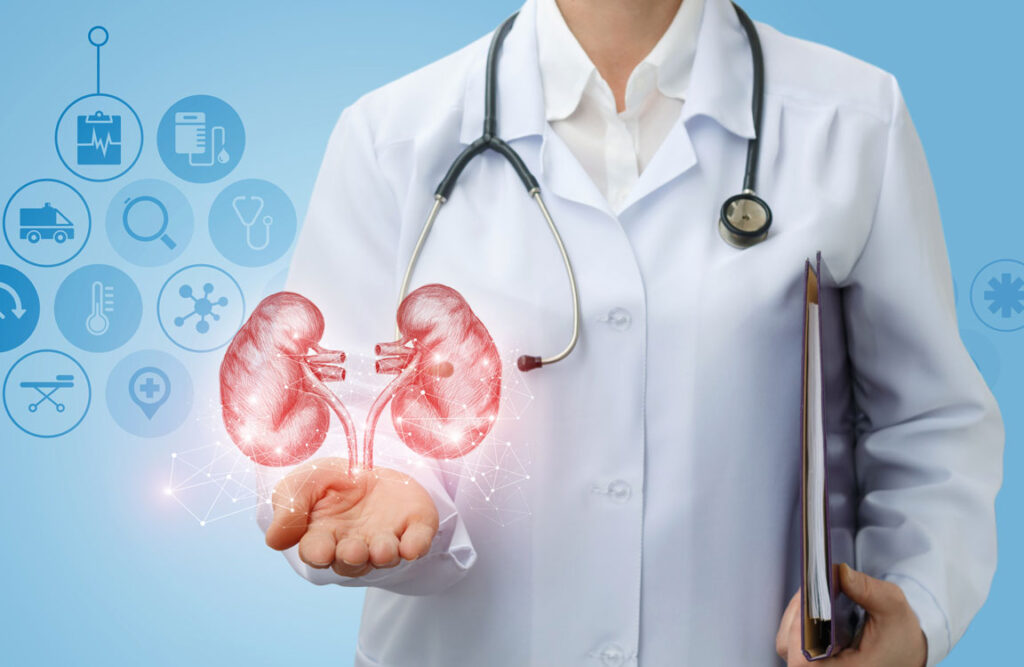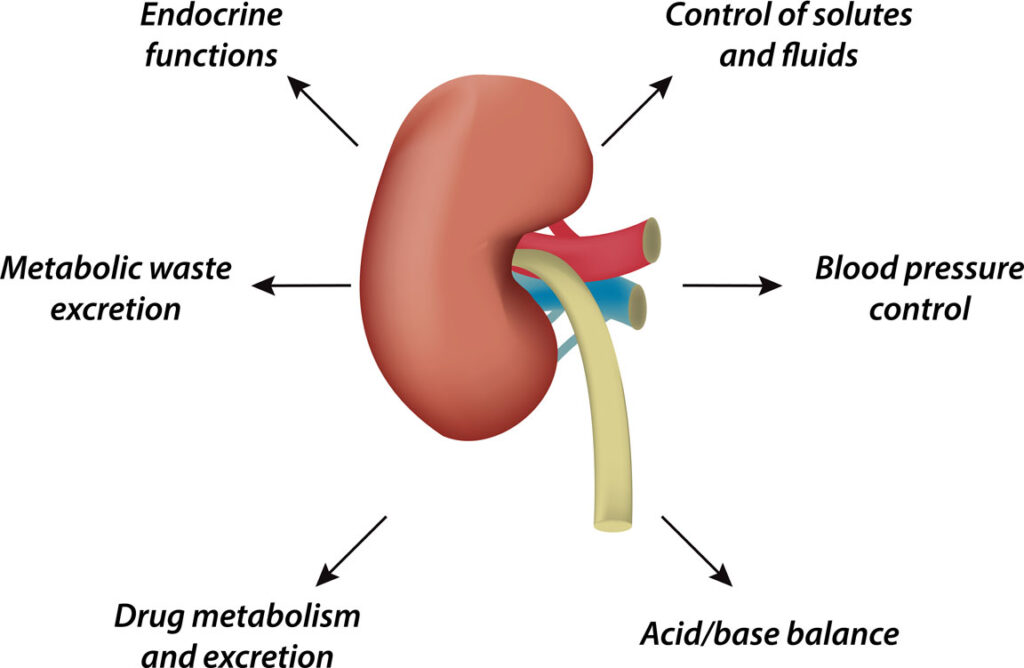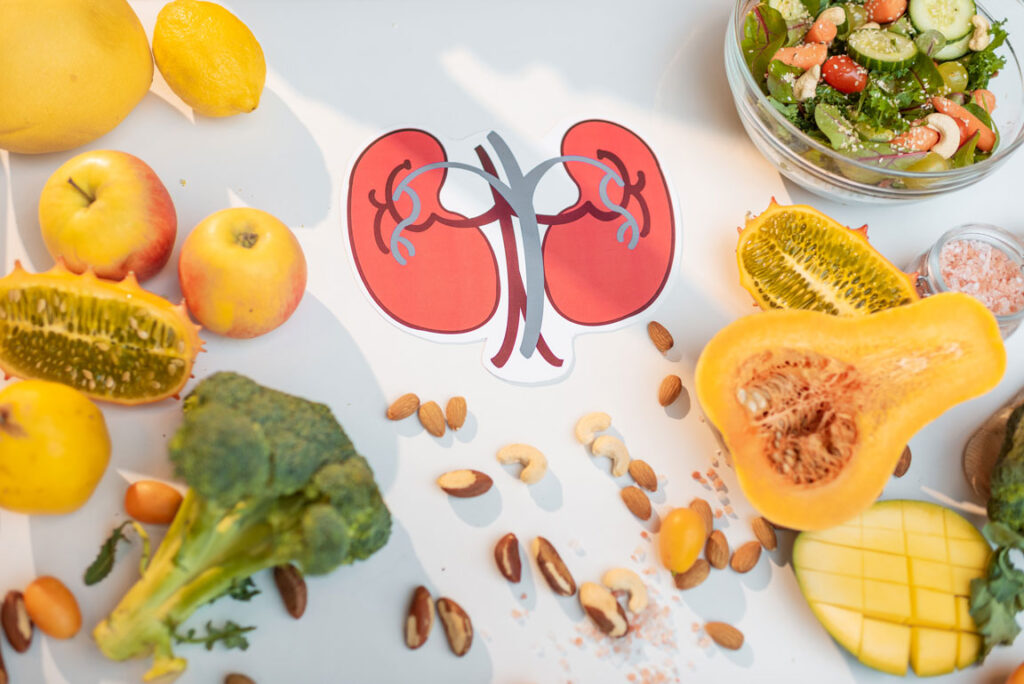Nearly 40 million American adults are living with chronic kidney disease. Unfortunately, due to the subtleties of chronic kidney disease symptoms, most people are unaware they have this health condition until the symptoms become severe. This article will provide information on the kidneys and tips that help promote kidney health in light of National Kidney Month.
About the Kidneys
The kidneys are two bean-shaped organs, each about the size of a fist. They are located just below the rib cage, one on each side of your spine.
Healthy kidneys filter about a half cup of blood every minute, removing wastes and extra water to make urine. The urine flows from the kidneys to the bladder through two thin tubes of muscle called ureters, one on each side of your bladder. Your bladder stores urine. Your kidneys, ureters, and bladder are part of your urinary tract.


Additional Kidney Functions
Your kidneys remove wastes and extra fluid from your body. Your kidneys also remove acid that is produced by the cells of your body and maintain a healthy balance of water, salts, and minerals—such as sodium, calcium, phosphorus, and potassium—in your blood.
Without this balance, nerves, muscles, and other tissues in your body may not work normally.
Your kidneys also make hormones that help
- control your blood pressure
- make red blood cells
- keep your bones strong and healthy
–National Institute of Diabetes and Digestive and Kidney Diseases
Taking Care of Your Kidneys
Follow these healthy lifestyle tips to take charge of your kidney health.
- Meet regularly with your health care team. Staying connected with your doctor, whether in-person or using telehealth via phone or computer, can help you maintain your kidney health.
- Manage blood pressure and monitor blood glucose levels. Work with your health care team to develop a plan to meet your blood pressure goals and check your blood glucose level regularly if you have diabetes.
- Take medicine as prescribed and avoid NSAIDs like ibuprofen and naproxen. Your pharmacist and doctor need to know about all the medicines you take.
- Aim for a healthy weight. Create a healthy meal plan and consider working with your doctor to develop a weight-loss plan that works for you.
- Reduce stress and make physical activity part of your routine. Consider healthy stress-reducing activities and get at least 30 minutes or more of physical activity each day.
- Make time for sleep. Aim for 7 to 8 hours of sleep per night.
- Quit smoking. If you smoke, take steps to quit.

Additional Kidney Health Tips
Other methods to promote kidney health include lowering your sodium intake, eating the right amount of protein, and eating heart-healthy foods like:
- Fruits and vegetables
- Beans
- Fish
- Lean meats
- Low-fat dairy products
